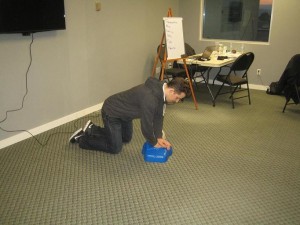Our training providers are located in six cities over the United States. We have the best CPR training classes you will find – with cheap rates and incredibly high quality programs. Other providers have very expensive rates for training but not us. Getting a CPR training credential has never been as easy. You can visit any of our provider websites and use the online form to sign up for a class, or send an e-mail or give us a call. Signing up can also be done in person (highly encouraged by the staff).
CPR training certificates
Training certificates received from any of our training classes are valid for a total of 24 months. If they are not renewed before the two years is up, the training credential expires. Renewal is completed through a re-certification class, usually shorter than the training program. Once a credential expires, it can no longer be renewed. The student has to take the the training program again. Re-certification is available for only three out of five programs, one BLS and two ALS courses.
Basic Life Support programs

The first category for training classes is basic life support or BLS. BLS train students how to stabilize a victim of cardiac arrest before emergency medical services arrives. Cardiac arrest happens when the heart cannot pump blood to the rest of the body. To return spontaneous circulation of oxygentated blood, chest compressions and rescue breaths have to be give at a ration of 30:2.
- Heartsaver CPR/AED (4 hours) – This is a basic CPR program for the general public. It teaches basic one-person CPR skills, first aid, and automated external defibrillation. This program offered optional certification (trainees can opt out of the skills test that will allow a trainee to become certified).
- Heartsaver CPR/AED (C) (4.5 hours) – This is a basic CPR program for health care providers. It has the same curriculum as the general public program but tailored for HCPs.
- Basic Life Support for HCPs (4.5 hours) – This basic CPR program teaches one and two person CPR rescue and the 2010 BLS guidelines from the American Heart Association. First aid and defibrillation training is still included in the program. Re-certification is four hours.
Advanced Life Support programs
ALS programs teach trainees how to medically manage cardiac arrest after BLS has been given. Medical management includes the use of medication, equipment, and diagnostic exams to further stabilize the victim. Trainees learn how to use bag valve masks, manual defibrillators, and ECGs. Learning how to read and analyze an ECG training, pharmacology, and assessment is also part of ALS.
- Advanced Cardiac Life Support (ACLS) – ACLS training runs for a total of 16 hours spaced out over 2 days. It teaches trainees how to medically manage an adult victim. Re-certification is five to six hours.
- Pediatric Advanced Life Support (PALS) – PALS training runs for a total of 14 hours spaced out over 2 days. It teaches trainees how to medically manage a pediatric victim. Re-certification is six to eight hours. Pediatric patients are people younger than 18 years of age.
